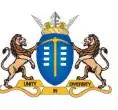
Job Description
HR Administrator Vacancies
-

BDO South Africa, 1 Post – People & Culture Intern
BDO South AfricaIllovo, Gauteng -

Omnia Marketing Graduate Job
OmniaFourways, Johannesburg -

Hewlett Packard Enterprise B-BBEE & HR Internship
Hewlett Packard EnterpriseJohannesburg, Gauteng -

Givaudan HR Administration Learnership
GivaudanJohannesburg, Gauteng -

Momentum Human Capital Graduate Job Opportunity
MomentumCenturion, Gauteng -

Valterra Platinum Internship Programme (X4 Posts)
De Beers GroupMokopane, Limpopo -

Learning & Development Internship at HEINEKEN
The HEINEKEN CompanyJohannesburg, Gauteng -

CSG HR Shared Services Graduate Program
CSGCenturion, Gauteng -

Human Resources Graduate Vacancies Fraser Alexander
Fraser Alexander (Pty) Ltd.Gauteng -

HR In‑Service Trainee Job Opportunity at Nestlé
NestléBryanston, Gauteng -

Shoprite People Delivery Assistant Job Opportunity
ShopriteCenturion, Gauteng -

RSR Bursary Opportunity (1 Post)
Railway Safety Regulator (RSR)Gauteng -

Registry Clerk Job at Gauteng Department: e-Government
Gauteng Department: e-GovernmentJohannesburg, Gauteng -

Dwarsrivier Chrome Mine Geology Internship
Dwarsrivier Chrome Mine (Pty) LtdBurgersfort, Limpopo -

Human Resources Internship Dwarsrivier Chrome Mine
Dwarsrivier Chrome Mine (Pty) LtdBurgersfort, Limpopo -

Tiger Brands Future Leaders Programme (1 Post)
Tiger BrandsBryanston, Gauteng -

Hollard Insurance Learnership – PWDs (X18 posts)
Hollard InsuranceJohannesburg, Gauteng -

AVBOB Internship Programme (1 Post)
AVBOBCenturion, Gauteng -

Rand Refinery Partial Bursary Opportunity
Rand RefineryEast Rand, Gauteng -

People Internship – Analytics Vacancies (1 Post)
The HEINEKEN CompanyStellenbosch, Western Cape
Duties and Responsibilities
The duties of an HR Administrator can vary depending on the organization’s size and industry, but common responsibilities include:
- Recruitment and Selection: Assisting with the recruitment process by posting job advertisements, scheduling interviews, managing CV databases, liaising with candidates, and conducting background checks. They also help with recruitment statistics for Employment Equity (EE) purposes, ensuring compliance with South African regulations.
- Employee Onboarding and Offboarding: Preparing offer letters, employment contracts, and creating employee profiles in the HR system. They conduct orientation sessions for new hires, collate probation documents, and handle exit interviews and termination processes, ensuring smooth transitions.
- Employee Records Management: Maintaining accurate and up-to-date employee records, including personal information, attendance, and performance evaluations. They ensure confidentiality and security of employee data, adhering to data protection standards.
- Payroll and Benefits Administration: Assisting with payroll processing, including calculating salaries, deductions, and bonuses. They manage employee benefits such as medical aid, pension funds, and leave entitlements, ensuring timely and accurate administration.
- Compliance and Legal Requirements: Staying up-to-date with South African labor laws, such as the Basic Conditions of Employment Act (BCEA), Labour Relations Act (LRA), and Occupational Health and Safety Act (OHSA). They prepare and submit statutory reports, including those for the Compensation for Occupational Injuries and Diseases Act (COIDA), Unemployment Insurance Fund (UIF), and Employment Equity, as well as monthly internal reports on legislative changes.
- Training and Development: Assisting in the organization and implementation of training programs, managing the training budget, and ensuring proper record-keeping for skills development reports, such as Workplace Skills Plan (WSP) and Annual Training Report (ATR), which are crucial for Broad-Based Black Economic Empowerment (BEE) compliance.
- Employee Relations: Advising employees on HR policies and procedures, resolving employee concerns, and escalating issues to the HR Manager when necessary. They ensure updates are provided to senior HR staff, maintaining effective communication.
- HR Policies and Procedures: Reviewing, updating, and implementing HR policies and procedures to ensure they align with current legislation, supporting organizational compliance and efficiency.
Salary
The salary for an HR Administrator in South Africa varies significantly based on factors such as experience, location, industry, and the size of the organization. Recent data from multiple sources, including PayScale, Indeed, and Jobted.co.za, as of June 2025, provide the following insights:
- Average Salary Range: Research suggests the average annual salary is around R170,000 to R180,000, with a range from R120,000 to R300,000, depending on experience and other factors. For example, PayScale reports an average of R175,476 per year, while Indeed notes R13,837 per month (R166,044 annually), and Jobted.co.za cites R167,735 per year.
- Experience-Based Variations:
- Entry-Level (0-3 years): Salaries typically start at R120,000 to R180,000 per year. Jobted.co.za indicates a junior HR Administrator earns around R10,289 per month (R123,468 annually).
- Mid-Level (4-9 years): Mid-career professionals can expect R180,000 to R250,000 per year, with Jobted.co.za reporting R12,881 per month (R154,572 annually).
- Experienced (10+ years): Experienced HR Administrators may earn up to R300,000 or more, with Jobted.co.za noting R18,500 per month (R222,000 annually) for 10-20 years, and over R20,730 per month (R248,760 annually) for more than 20 years.
- Location and Industry Impact: Salaries can vary by city and sector. For instance, urban areas like Johannesburg and Cape Town may offer higher salaries due to cost of living, while industries like finance and technology tend to pay more compared to smaller or less competitive sectors.
- Additional Compensation: Some roles may include bonuses, with Salary Expert reporting an average bonus of R12,240, which can increase total compensation.
These figures are indicative and may differ based on specific job offers and negotiations, but they provide a solid benchmark for understanding earning potential.
Requirements
To become an HR Administrator in South Africa, candidates typically need to meet the following requirements, based on job postings and professional standards:
- Education:
- A certificate or diploma in Human Resources Management or a related field is often required, with a focus on HR administration. Some positions may prefer a bachelor’s degree in HR or Business Administration for higher-level roles.
- Professional registration with the South African Board for People Practices (SABPP) is advantageous. For example, the HR Technician level requires a 1-year HR certificate and 1 year of experience, while the HR Associate level requires a 2-year diploma and 2 years of experience (see Table 1 for details).
- Experience:
- At least 1-2 years of experience in HR administration or a similar role is commonly expected. Job postings often mention “experienced” candidates, with some specifying 2 years of relevant experience, such as in recruitment or payroll.
- Skills:
- Proficiency in Microsoft Office suite, particularly Excel, is essential for data management and reporting.
- Strong organizational and time management skills to handle multiple tasks efficiently.
- Excellent communication and interpersonal skills for interacting with employees and external partners.
- Attention to detail and accuracy in record-keeping, ensuring compliance with legal standards.
- Knowledge of South African labor laws and regulations, including BCEA, LRA, OHSA, and skills development legislation, is critical.
- Familiarity with HR software, such as SAGE 300 People System, can be a distinct advantage, especially in larger organizations.
- Certifications:
- While not always mandatory, professional registration with SABPP as an HR Technician or Associate can enhance employability and career progression. Other certifications, like those in payroll administration, may also be beneficial.
- Personal Attributes:
- Strong organizational skills, ability to prioritize projects, and a collaborative team approach are often highlighted in job descriptions. High levels of accuracy and attention to detail are also crucial.
These requirements ensure that HR Administrators can effectively support HR functions and contribute to organizational success.
Table 1: SABPP Professional Registration Levels and Requirements
|
Role
|
Educational Requirement
|
Experience Requirement
|
Additional Requirements
|
Registration Fee (R)
|
|---|---|---|---|---|
|
Master HR Professional
|
Completed HR or HR-related Doctorate/Masters
|
6 yrs HR top management level experience
|
Organogram, Board Exams Level 1 & compulsory Board Exam 2
|
4,330.00
|
|
Chartered HR Professional
|
Completed 4-year HR or HR-related Honours/Post Grad
|
4 yrs HR Senior management level experience
|
Organogram, Board Exams Level 1 & 2
|
3,580.00
|
|
HR Professional
|
Completed 3-year HR or HR-related Degree/Diploma
|
3 yrs HR middle management experience
|
Organogram, Board Exams Level 1
|
2,770.00
|
|
HR Associate
|
Completed 2-year HR or HR-related Diploma
|
2 yrs HR experience
|
Board Exams Level 1
|
2,240.00
|
|
HR Technician
|
Completed 1-year HR or HR-related Certificate
|
1 yr HR experience
|
1,880.00
|
For those not meeting these requirements, SABPP offers a Recognition of Prior Learning (RPL) process for membership, accessible at SABPP Membership.
Leave a Reply